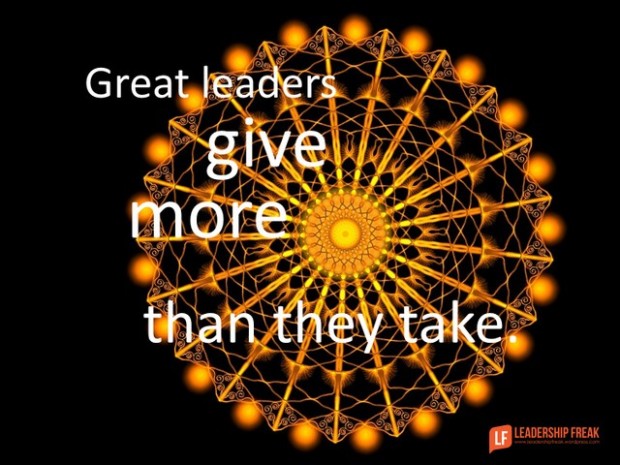Small leaders/managers need to feel big!
Egotistical leaders/managers walk around like they run the place. But, no one enjoys an insecure, heavy handed, meddlesome, leader.
Small leaders/managers:
- Throw their weight around.
- Get huffy when challenged.
- Love control.
- Thrive on perks.
- Steal the spotlight.
- Put people down.
- Feel threatened.
- Need to be coddled.
- Hold grudges and withhold gratitude.
- Elevate themselves while overshadowing others.
- Know more than everyone else.
- Have all the answers.
Small managers have big egos.
Three steps to great leadership:
Ego blocks greatness.
Service is the path to greatness.
The more people you serve the greater you become.
1. Give yourself wholeheartedly to service.
Think under not over.
Keep saying, “I’m here to serve the people who serve this organization.”
The higher you go, the more people you get to serve. Great leaders are at the bottom of the heap, not the top.
2. Pour into yourself so you can pour into others.
When I say, “Pour into yourself,” I don’t mean go easy on yourself!
Ease is the path to oblivion. Can you name one person who makes you better by pushing you out of your comfort zone? Comfort is the path to more of the same.
I’m saddened by how many leaders lose themselves to position and how few pour into their own leadership. Can you name three people who challenge your thinking and strengthen your heart?
3. Stop doing leadership. Be a leader.
The greatest loss of leadership is forgetting who you are.
Who helps you find and express your authentic leadership? Is there one person who asks you, “Who do you want to be?”
Leeches pressure you to do stuff at the expense of your soul. Some leaders don’t even understand the question, “Who do you want to be?”
What are the top three characteristics of the person you aspire to be today? (Not activities.)
How might you give yourself to service today?

